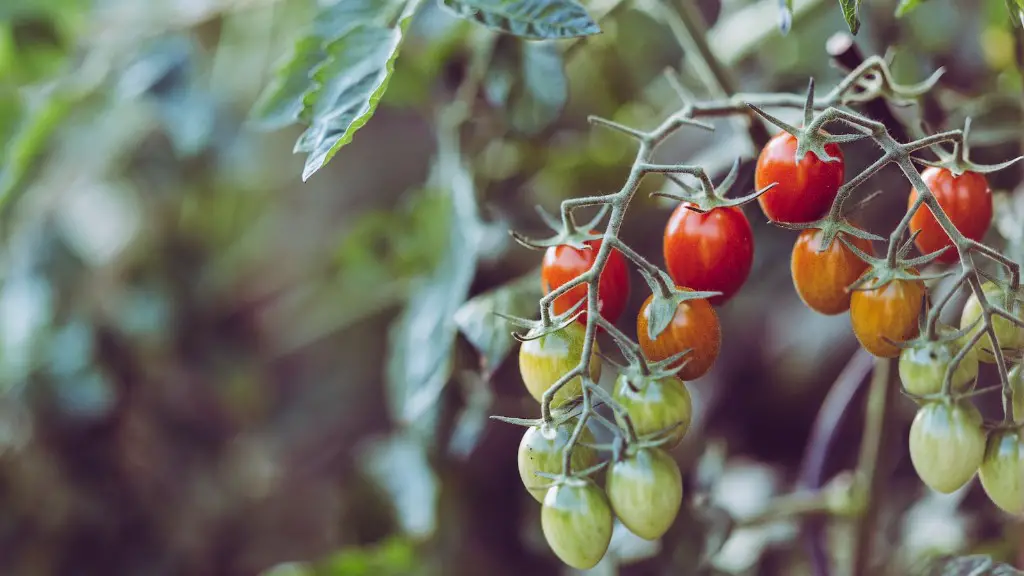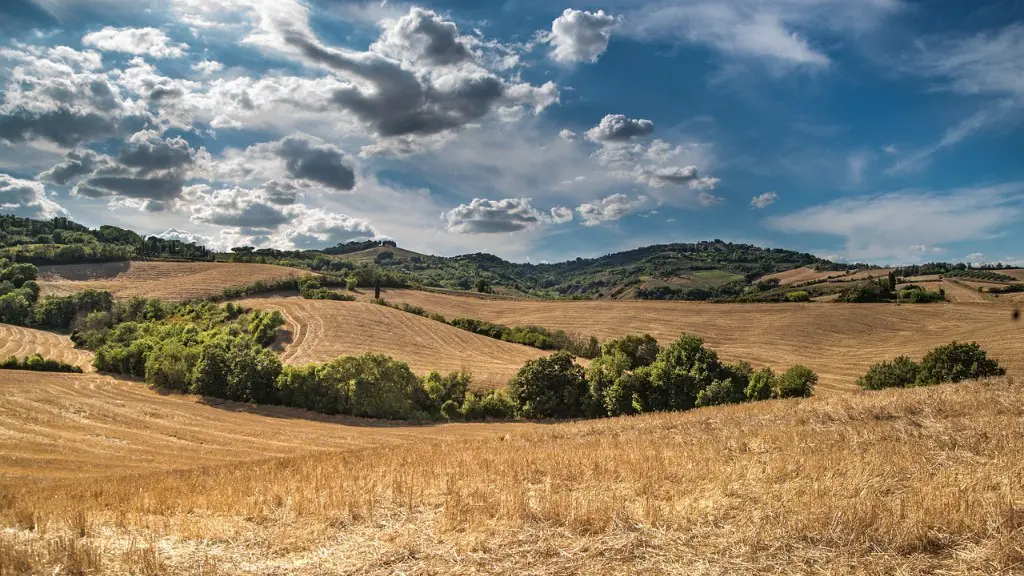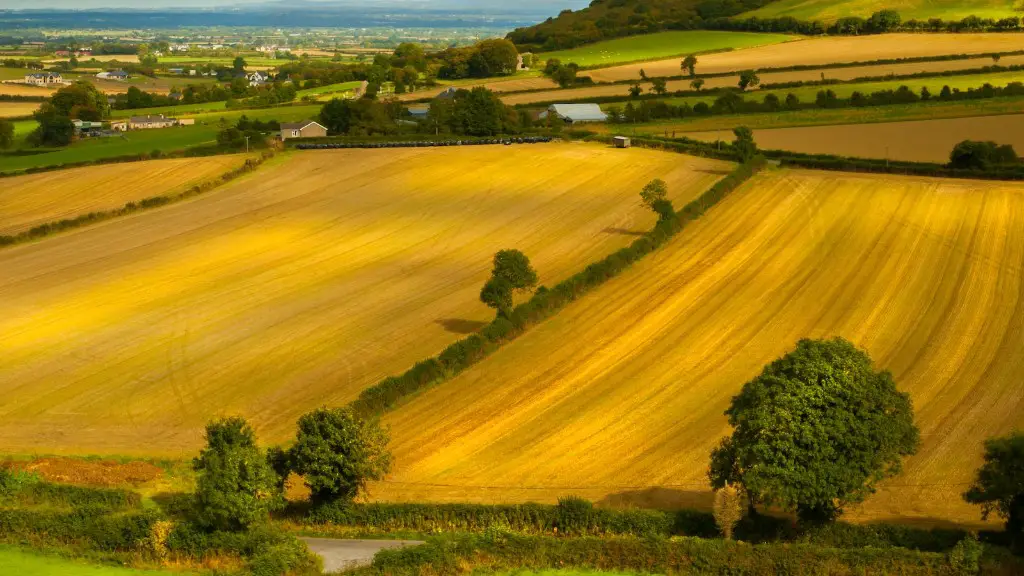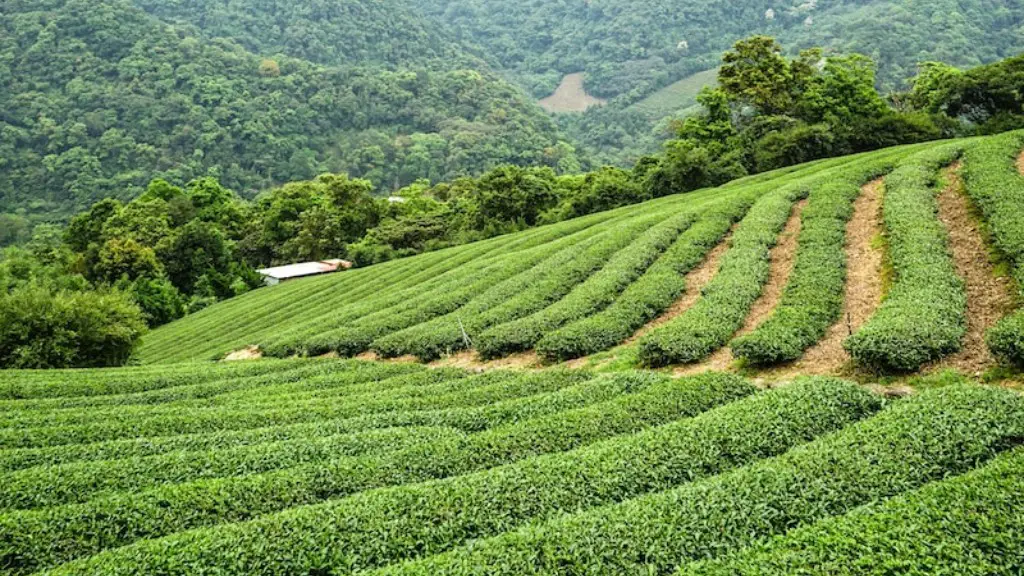The agriculture industry is a bustling industry that continuously undergoes changes. From the technological advancements to the vast number of regulations it is affected by, the industry constantly has to adapt and adjust accordingly. To keep up with the times, farmers and organisations need to be mindful of how their industry is evolving, and why. Here are the main ways in which the agriculture industry is changing:
1. Increasing Mechanisation: With the widespread use of automation, farmers have been able to reduce labour costs. Mechanisation has enabled farmers to reduce the amount of physical labour required and they can now reach far greater yields while at the same time improving the quality of their crop. However, the downside to this is that this change has caused displacement in jobs that used to depend on the manual nature of the agricultural process.
2. Effect of Climate Change: Climate change has been a growing concern in the agriculture industry, with farmers being most vulnerable. Unusual weather patterns and rising temperatures have caused disruptions to the agricultural cycle and have led to crop failure and soil erosion. To help mitigate this, farmers are becoming increasingly aware of their environmental impact, incorporating sustainable practices on their farms and investing in renewable energy sources.
3. Increased Technological Development: Farmers have long relied on technology to help increase productivity, but with advances in genetics, drones, artificial intelligence and big data, they are now able to take full advantage of new technology to understand their environment more and manage their farms more efficiently. This has enabled farmers to better predict and forecast crop yields and manage risks more effectively.
4. Elevated Farming Costs: Farming costs have risen over the years, due to the laborious nature of the job and advances in technology that are needed to be kept up to date. The high cost of inputs and labor, as well as increasing legal regulations, all contribute to a situation where the margins for farmers are limited.
5. Growing Focus on Traceability: Consumers are now becoming more aware of where their food is coming from and how it was made. This has prompted an increased focus on traceability in the agriculture industry, with farmers being commissioned to provide detailed traceability records that reveal the entire process from farm to store.
6. Growing Use of the Internet of Things: The Internet of Things (IoT), is increasingly being used by farmers to monitor and analyse their crops more accurately. IoT can be used to monitor climate conditions, soil composition, yields and keep track of input costs.
7. Food Scarcity and Rising Demand: There is an ever rising demand for food as population growth continues, and with the finite amount of soils and land, this is putting a strain on the agriculture industry’s ability to produce in order to keep up with demand. By tapping into alternative crops, as well as investing in new methods of food production, farmers are having to think outside of the box in order to keep up with increasing demand.
Technological Advancements
Technological advancement has been a major contributor to the efficiencies seen in the agriculture industry. Computerised software tools such as ERP systems and Automated Control Systems (ACS) are being incorporated into the process, enabling farmers to monitor and analyse data such as climate conditions, soil composition, and yields more accurately. This has enabled farmers to respond quickly to challenging situations and keep abreast of the latest developments in the industry. Additionally, big data can be utilised to gain invaluable insights that can be used to better understand the current state of the agricultural business.
Furthermore, machine learning algorithms are being implemented to help automate tasks and improve accuracy. These algorithms can learn over time by detecting patterns in the data, which can then be applied to optimise production processes. This can help reduce human intervention and manage time-consuming tasks more effectively.
In addition to big data and machine learning, drones and robots are becoming increasingly popular amongst farmers. Drones can be used to scout crops, identify pests and identify plants in need of fertilisers or other nutrients. Robots, on the other hand, can be used to manage labour intensive tasks such as planting, spraying and harvesting. This helps to substantially reduce the workload for farmers, enabling them to manage their farms more efficiently.
Overall, the advancements in technology have allowed farmers to tap into advanced systems to better understand their environment and manage their farms more effectively. This has enabled them to stay competitive and keep up with the ever-changing agriculture industry.
Climate Change and Sustainability
Climate change has been one of the biggest challenges faced by the agriculture industry. Unprecedented weather patterns and rising temperatures have caused disruptions to the agricultural cycle and have led to crop failure, soil degradation, and water shortages. In order to address this, farmers have tried to implement better management practices that are more sustainable and less dependent on the environment.
The use of renewable energy sources such as wind and solar has been steadily increasing in the agricultural sector as it helps to reduce reliance on fossil fuels and is more cost-effective in the long run. Additionally, the incorporation of cover crops and inter-cropping helps to improve soil health and reduce soil erosion. This can significantly reduce pest, weed and disease pressures and help keep soil fertility at an optimum level.
Aside from renewable energy sources, the implementation of integrated pest management (IPM) can help to control pests and reduce the need for chemical pesticides. Biopesticides can be used as an alternative to chemical pesticides and are now becoming a common solution. These biopesticides are cost-effective and environmentally friendly, making them an attractive proposition for farmers.
Organic farming is another approach to sustainable farming that has been gaining in popularity over the past few years. This involves using organic fertilisers that are derived from the breakdown of composted organic material, as well as using biological pest controls such as natural predators and using crop rotation to maintain soil fertility.
Overall, the increasing focus on sustainability has enabled farmers to take a more eco-friendly approach to farming. This has the potential to help farmers produce significantly more with fewer resources, while also protecting the environment from the negative effects of climate change.
Growing Demand for Traceability
Traceability has become increasingly important for the agriculture industry in recent years. This is because consumers are becoming more informed and aware of the origin and quality of the food they consume. Traceability data helps to provide an understanding of the entire production process, from farm to store and can help to ensure safety and quality of the foods being purchased.
The EU has implemented the Traceability Regulation, which obligates food and feed producers to keep comprehensive records of their products in order to help identify any potential issues that might arise. This information is accessible to the public and it helps to ensure compliance with the highest standards of food safety.
To ensure adherence to traceability laws, farmers have to maintain accurate records as part of their production processes. This involves documenting every step of the production process in detail, from the origins of raw materials to the final product placed on store shelves.
Traceability data helps to build trust between consumers and farmers, as it gives customers the assurance that the products they buy are of the highest quality. This information can also be used for marketing purposes, as it helps to differentiate your products from those of your competitors.
Overall, traceability helps to improve food safety by providing visibility into the entire production process. It also helps to build trust between consumers and farmers, whilst enabling farmers to further differentiate their products.
The Use of the Internet of Things
The Internet of Things (IoT) has become a part of the agricultural industry in recent years, with farmers using it to gain better insight into their environment. By connecting a number of sensors, farmers can monitor everything from temperature and soil composition to water levels and crop health.
In addition, IoT devices can be used to accurately monitor and control climate conditions, enabling farmers to significantly improve their yields. This reduces the possibility of wastage, as well as the impact that climate events can have on crop growth.
Moreover, smart irrigation systems can be used to monitor soil moisture and soil composition in order to determine how much water needs to be applied to a crop. This helps to reduce water wastage as farmers can accurately determine which crops require more water and which require less.
Moreover, IoT analytics can be used to monitor the various data points in order to help farmers anticipate problems before they arise and take action accordingly. This can help to reduce loss and help to increase yields.
Overall, the Internet of Things is enabling farmers to gain better visibility into their environment, as well as helping them to better predict and manage risks. This helps to better equip farmers to tackle the challenges posed by the ever-changing climate.
Rising Food Demand
With the global population continuing to rise, the demand for food is also on the increase and this has put immense pressure on the agriculture industry. To address this, farmers have had to think outside of the box and incorporate alternative crops into their production processes. This includes tapping into crops that are more resilient to cope with the ever-changing climate, as well as utilizing advances in genetic engineering and hydroponics to produce food faster and with fewer resources.
Furthermore, technology has helped farmers to gain deeper insights into the growing process in order to increase efficiency and optimize operations. This has included the use of data analysis to determine the best timing for planting crops, as well as the optimal amount of water and nutrients to be used for optimum yields.
In addition, urban farming is becoming increasingly popular due to the efficiency benefits it can bring. This enables farmers to produce crops in areas where land is scarce, as well as being able to capitalise on local markets and reduce transportation costs.
Overall, the increasing demand for food has enabled farmers to think outside of the box in order to produce more with fewer resources. This has enabled them to remain competitive and keep up with the ever-increasing demand for food.
Conclusion
The agriculture industry is constantly changing and adapting to the challenges posed by climate change, technological advancements, and the increasing demand for food. To keep up with the times, farmers and organisations need to be mindful of how their industry is evolving, and why.
Technological advancements have enabled farmers to take advantage of advanced systems to better understand their environment and manage their farms more effectively. Farmes have also had to focus on sustainability in order to better cope with climate change. Moreover, traceability and the use of the Internet of Things have enabled farmers to better gain visibility into the entire production process and help ensure the highest quality of food is produced.
Lastly, the ever-rising demand for food has prompted farmers to incorporate alternative crops into their production process and make use of advances in genetic engineering and hydroponics. This has enabled them to stay competitive and tap into local markets.
Overall, the agriculture industry is affected by various factors, but with the right approach and technology, farmers can remain competitive and cater to the constantly-changing needs of the industry.





